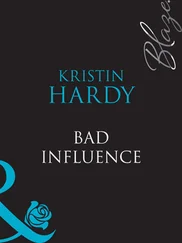Or the fact that her director had skipped to a different project.
The sound of the sliding glass door had her raising her head to see Gus step onto the flagstone patio, two glasses of iced tea in his hands. Though he was closing in on the age most people started drawing Social Security, time hadn’t stooped him or stiffened his easy stride. Maybe the years had added a network of lines to his hawk face and silvered the hair that flowed down over his collar, but, if anything, the changes made him appear even more wise, even more filled with the answers.
Answers she currently needed very badly.
He sat, staring at her with a faint smile on his face.
“What?” Sabrina asked.
“I’m just remembering you at your christening, kicking and squalling at the top of your lungs. You’ve grown up nicely.”
Sabrina gave him a tired smile. “Sometimes I don’t feel grown-up at all. At least, not grown-up enough to do everything that needs doing.”
He set a glass in front of her. “If it’s worth doing, it’s rarely easy.”
She nodded.
“How did your meeting with Schuyler go?”
Sabrina took a sip of her tea. “It went well, I think. He likes the concept. I played him on the competition with Spotlight! and he jumped.”
“What did you walk away with?”
“He’s open to it. All we have to do is wow him with the pilot and we’re home free.”
Gus nodded, watching a hummingbird whisk around the feeder that hung from the eaves of the house. “Well, that puts your foot in the door.”
“Yeah.” She rubbed her temples. “Except I just lost my director.”
Gus snapped his head around to stare at her. “I thought he was locked in.”
“He’d done everything but ink the papers,” she said, resisting the urge to begin pacing. “Timing’s everything in this business, you know that. Someone else offered him something he liked better.”
“So what are you going to do, kid?”
Sabrina gave him a wry smile. “I thought you might ask that. I spent the afternoon beating the bushes to find out who’s available and who I could afford.”
“And?”
“And nothing. I called everyone I could think of. No one’s free, at least no one who could do what we need.” She squared her shoulders. “I’ll do some more calling tomorrow. I can’t lose time when I’ve already told Schuyler it’s coming.”
Gus stroked his chin. “Did you try Marcus Amblin?”
Sabrina nodded. “No dice.”
“Petra Krausz?”
“Ditto. And Lloyd Asherton and the Lamonte-Crosby group. Everyone’s got balls in the air,” she finished morosely, rubbing patterns in the condensation on her glass. “Doesn’t mean it’s not going to happen eventually, it’s just that the delay makes me look bad to Schuyler.”
Gus tapped his fingers on the table. “There’s one possibility I can think of,” he said slowly. “Someone who owes me a favor and might be willing to help us out. You’d probably only have him for the pilot, but that’ll buy you some time to find another director for the main series. First things first, after all.”
Sabrina shook her head. “I don’t want you to call in favors on my account. I need to do this myself.”
“Oh, trust me, you’ll do it yourself. I’m just going to see if I can help clear the path a little.”
“Advice only, remember? And a swift kick in the pants if I ever need one. I don’t want you coming in and smoothing things over for me, Gus.”
Humor crinkled the corners of his eyes. “Trust me, petunia, if this works out, smooth is the last thing it’ll be.”
She gave him a suspicious look before raising her glass to take a sip. “What have you got up your sleeve? Who are you talking about?”
“He’s a filmmaker’s filmmaker,” he told her. “He’s not always easy, but he’s talented.”
“Who, Gus?” she persisted.
“He’ll be the one to take your concept from interesting to sublime.”
“Gus.” Her voice was full of warning.
The edge of his mouth twitched with what she could have sworn was humor. “Stef Costas.”
The glass of tea slipped from her fingers and shattered on the pavement.
STEFOS COSTAS SLOUCHED in front of the editing machine, scanning the black-and-white film of striking workers that flickered on the screen in front of him. The picket line stood blocking an old-fashioned factory gate, the men looking shabby and grimly determined. Then a jet of water shot in, knocking the men down. Stef frowned and stopped the film, rolling it back to review a few seconds’ worth of footage. At his elbow, the phone jangled for attention, but he ignored it, moving the film slowly, looking for the moment…there, that was it—the frame in which the first man was hit by the water, grimacing as the jet sent him tumbling over.
Stef’s straight dark hair fell over his forehead. He shoved it impatiently out of his way, pressing the editing controls to make the new cut and splice it into an interview with a historian. The room’s faint light turned his cheekbones into sharp slashes below eyes that were nearly black. He studied the new edit, the intensity that drew his face taut now softening slightly in satisfaction.
In film circles, Stef was known as a gifted documentary director. Focused, even driven, some said, he was the genius behind a critically lauded film about espionage in the American War of Independence and one on the Industrial Revolution. Unfortunately, being a hot property in documentary circles didn’t necessarily bring in cash or translate into getting green-lighted on any project he wished, not when he was crafting cinematic releases. Unless you were Ken Burns with a big-money sponsor and a main line to PBS, getting docs funded was always a battle. Fortunately, his next project—his dream project—was all set, just as soon as he finished his current piece on the early union movement.
It was time for him to make a film that really engaged him again. Of late, he’d been going through the motions. Sure, he was satisfied with his craftsmanship, but somehow it wasn’t quite enough to get rid of the restlessness that niggled at him.
When the phone jangled again, he reached over absently and picked it up.
“Costas,” he said economically, eyes on the screen as he fast-forwarded the film to reach his next target segment.
“Stef? Mitch.” It was the voice of his producer. “How’s it going?”
“Good. I’m finishing the edits on the union piece. I made a contact in Athens who’s going to fast-track some of the permit and approvals process. With luck, seven weeks from now, yours truly will be on the coast of the Aegean, filming.” And witnessing the excavation of a World War II execution site that held clues to the fates of members of the Greek underground. Members who might, perhaps, have included his grandfather.
If he closed his eyes, Stef could hear his grandmother’s heavily accented English as she told his younger self the stories of what had happened, what little she knew. And she’d wept. Even then, as a child, he’d vowed to ferret out the true story, to someday be able to tell her what had happened to the man she’d loved. The rift that had subsequently opened between her and his career-obsessed parents when she’d criticized their child-rearing hadn’t weakened his ties to her or the strength of his determination.
For years, Stef had researched the topic, waiting for the right moment to dive in. With two award-winning films already under his belt and the hotly anticipated union doc scheduled to premiere in a month, the timing felt right. “Everything’s looking good on this end as far as prep goes. I talked with the university team today, and they’re ready to have me film the entire excavation process.”
Читать дальше












